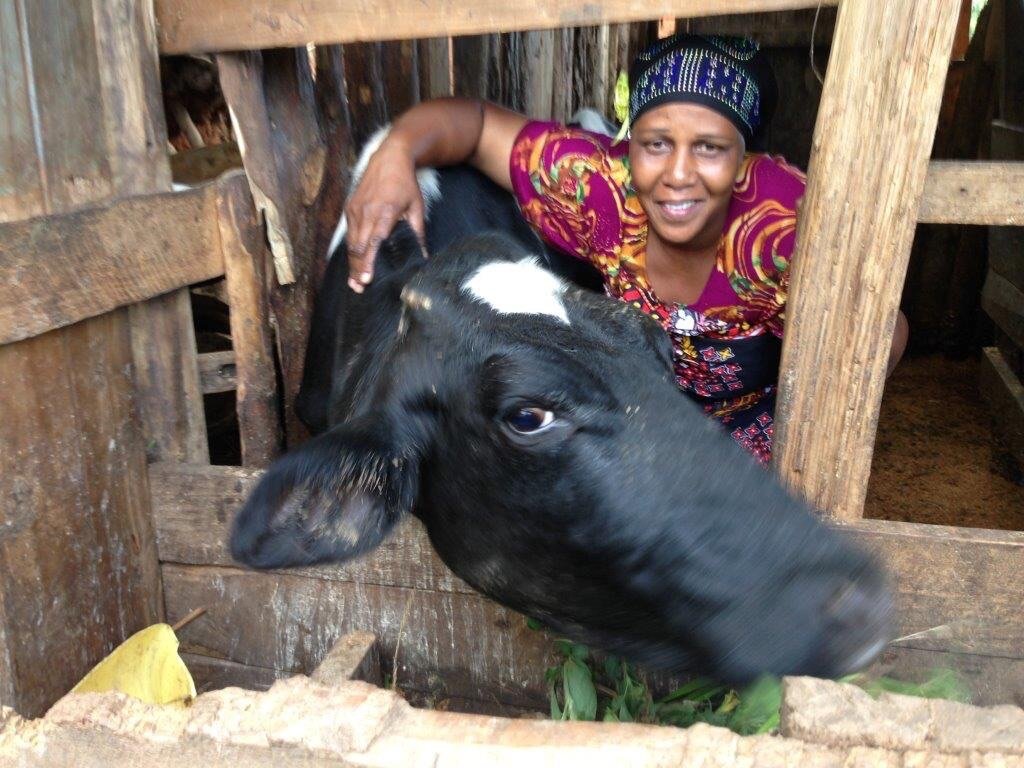What is the Tanzania Project?
I have recently arrived back from Tanzania - my 13th visit there since 2010 - and would like to fill you in on what is happening with the Fair World Foundation personal projects there.
For those of you who are unfamiliar with Tanzania, just a quick introduction: Tanzania is blessed with two factors that make for a peaceful country. Firstly, there is a total absence of tribal conflict, a terrible affliction that has spawned so much brutality in Africa.
Secondly, Tanzania is also blessed with peaceful co-existence between the Muslim and Christian religions which, although unevenly distributed, are approximately of equal size overall. These two factors alone give me the feeling that I am safe almost anywhere in Tanzania - taking of course the usual precautions that I would take anywhere in the world.
Much less blessed, and demonstrating an extremely harsh reality, the UN Development Programme rates Tanzania 156th of 174 nations in terms of human development - as measured by such concepts as ‘social justice, fairness, equality, tolerance, cultural diversity, non-violence and democracy’.
With a population of around 55 million and predicted to grow - in line with the rest of Africa - to an astonishing 109 million by 2050, family planning is, unsurprisingly, as good as non-existent.
The World Bank estimates that 28% of the population lives below the poverty line. Infant mortality at 42/1000 (Australia 4), child mortality at 49/1000 (4) and maternal mortality at 460/100,000 (7) are all high by international standards.
Most disturbingly for me, 55% of children under the age of 3 are stunted and 22% of children under the age of 5 are underweight.
The #1 cause of preventable deaths is HIV/AIDS where over 5% of the population are afflicted - the 14th worst rating in the world. Annually there are 10 million cases of malaria which is # 7 on the preventable deaths list - the 28th worst result in the world. On that preventable deaths list are also Influenza, Pneumonia, Stroke, Coronary Heart Disease, Diarrhoea, Malnutrition and Tuberculosis.
Unsurprisingly, life expectancy is 60.8 for men and 64.6 for women - 159th rating in the world. This is a full 20 years less than most of us in Europe and Australia would personally expect.
All in all, this paints a very disturbing picture of a country where the need for redressing unfairness and basic human rights is critical.
Happy cow and happy Farmer in the Usambara mountains of Tanzania.
The causes of poverty are many but a good empirical measure would be access to infrastructure (roads, electricity), education and, of course, health care. By such measures, the Usambara mountains of Tanzania , the area in which the FWF has undertaken the projects, is very poor indeed.
Electricity arrived at three of the largest villages in our area just before the election last year. The majority of villages still have absolutely no prospects in that regard in the foreseeable future.
Although most children go to school, the standard of education is not good. Typically, classes are filled to overflowing with 80 plus students. Teachers are in short supply and teaching materials are scarce. Thus, the quality of education is, to put it gently, unsatisfactory.
A typical family house in the Usambaras - rusty roof, dirt floors, open fire for cooking inside, cows and chickens mostly welcome inside during the night.
Decent health care is a universal human right. But if you are obliged to walk an hour or more to a very basic dispensary (the plight of many villagers in the region), your right has not been recognised. The nearest hospital (Lushoto) for many in the Usambara mountains is five hours distant by combined foot and bus.
Typically challenging ‘road’ on which almost everyone walks - note women (yes, always women!) carrying quite heavy loads (goods to sell on the market) on their heads. Our car is often full with hitch-hikers. Lifti? Lifti? is the refrain often heard as we pass with empty seats. Our record is nine delightedly sandwiched adults in the car - including the back space. Sometimes they have to get out whilst I struggle up an incline or negotiate a difficult stretch.
To live without being subjected to poverty, with all its impediments, is a basic human right. To my mind there are basically two main courses of action for us to redress such human rights violations - advocacy where one enters into a (often fractious) dialogue with governments, or direct action where one attempts to redress injustice by reducing people’s suffering. On a political advocacy level organisations such as the Australian-based Human Rights Law Centre and the Geneva-based International Service for Human Rights, amongst others, are wonderful examples of how we can push back against recalcitrant governments. On a practical level, FareShare in Australia is a superb example of ordinary people making an extraordinary difference through direct action. The Asylum Seekers Resource Centre in Melbourne is somewhat of a hybrid of the two methods - helping disadvantaged people and advocating with government.
The FWF believes in and supports both approaches. However, in Tanzania, as a guest in the country, we stay well away from political advocacy. Rather, we, like many other NGOs, are working at ground (village) level to bring about change for a better life for the people and animals of the Usambara mountains.
We are active in 13 villages there. You can see what is happening in each village by looking through the following blog posts.



